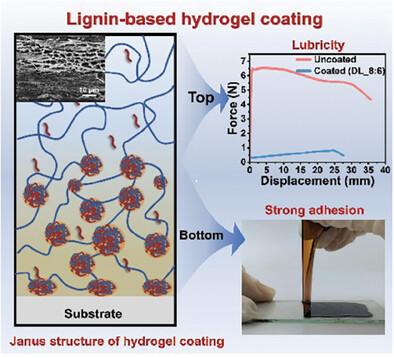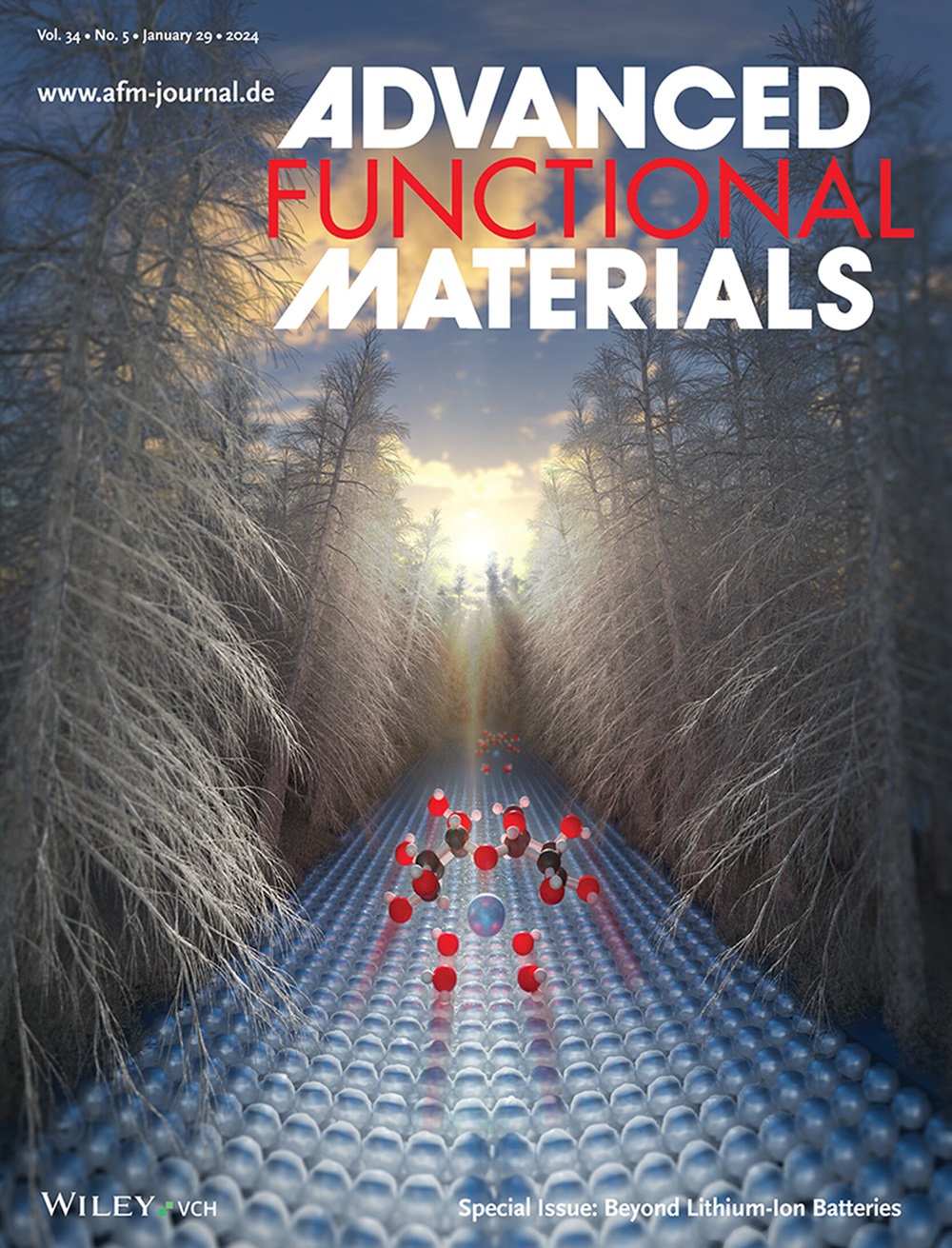Lignin-Based Ultrathin Hydrogel Coatings with Strong Substrate Adhesion Enabled by Hydrophobic Association
IF 18.5
1区 材料科学
Q1 CHEMISTRY, MULTIDISCIPLINARY
引用次数: 0
Abstract
Hydrogel coatings are crucial strategies for integrating substrates with functional surfaces. Hydrogel coating with a facile coating process, high toughness, and ultrathin thickness is highly desired. This study utilizes the self-assembly of hydrophobic lignin into chain-dense regions during solvent evaporation and constructed a hydrogel coating with Janus structure from hydrophilic polymer and hydrophobic lignin through a facile coating-drying-swelling process at room temperature (25 °C). The Janus structure formed as the hydrophobic lignin-aggregated regions remained at the bottom while the hydrophilic polymer swell at the top. The lignin-aggregated regions constrained the swelling of the hydrogel coating, allowing for an ultrathin coating layer of ≈8 µm. Additionally, the lignin-aggregated region increases the stiffness and toughness of the thin hydrogel coating film by establishing strong interfacial bonding with the substrate via dense Van der Waals forces, thereby increasing overall adhesion energy with thin thickness and to various substrates such as glass, polytetrafluoroethylene (PTFE), metal, and rubber. The hydration layer is formed by the hydrophilic polymer swollen on top, which improves lubrication and antifouling properties. Furthermore, the hydrogel coating exhibits high stability in water and saline solutions, ultraviolet shielding properties, and the ability to be removed and recycled after use.

木质素基超薄水凝胶涂层通过疏水性结合实现了强大的基底粘附力
水凝胶涂层是将基底与功能表面集成的重要策略。人们非常希望水凝胶涂层具有涂覆工艺简便、韧性高、厚度超薄等特点。本研究利用疏水性木质素在溶剂蒸发过程中自组装成链致密区域的特性,在室温(25 °C)下通过简便的涂布-干燥-膨胀过程,用亲水性聚合物和疏水性木质素构建了具有杰纳斯结构的水凝胶涂层。由于疏水性木质素聚集区留在底部,而亲水性聚合物在顶部膨胀,因此形成了杰纳斯结构。木质素聚集区限制了水凝胶涂层的溶胀,从而形成了≈8 µm的超薄涂层。此外,木质素聚合区通过致密的范德华力与基底建立了牢固的界面结合,从而增加了薄水凝胶涂层膜的刚度和韧性,从而提高了薄厚度和各种基底(如玻璃、聚四氟乙烯(PTFE)、金属和橡胶)的整体粘附能。水合层由顶部膨胀的亲水性聚合物形成,可提高润滑和防污性能。此外,水凝胶涂层在水和盐溶液中具有高稳定性,具有紫外线屏蔽性能,使用后可去除和回收。
本文章由计算机程序翻译,如有差异,请以英文原文为准。
求助全文
约1分钟内获得全文
求助全文
来源期刊

Advanced Functional Materials
工程技术-材料科学:综合
CiteScore
29.50
自引率
4.20%
发文量
2086
审稿时长
2.1 months
期刊介绍:
Firmly established as a top-tier materials science journal, Advanced Functional Materials reports breakthrough research in all aspects of materials science, including nanotechnology, chemistry, physics, and biology every week.
Advanced Functional Materials is known for its rapid and fair peer review, quality content, and high impact, making it the first choice of the international materials science community.
 求助内容:
求助内容: 应助结果提醒方式:
应助结果提醒方式:


